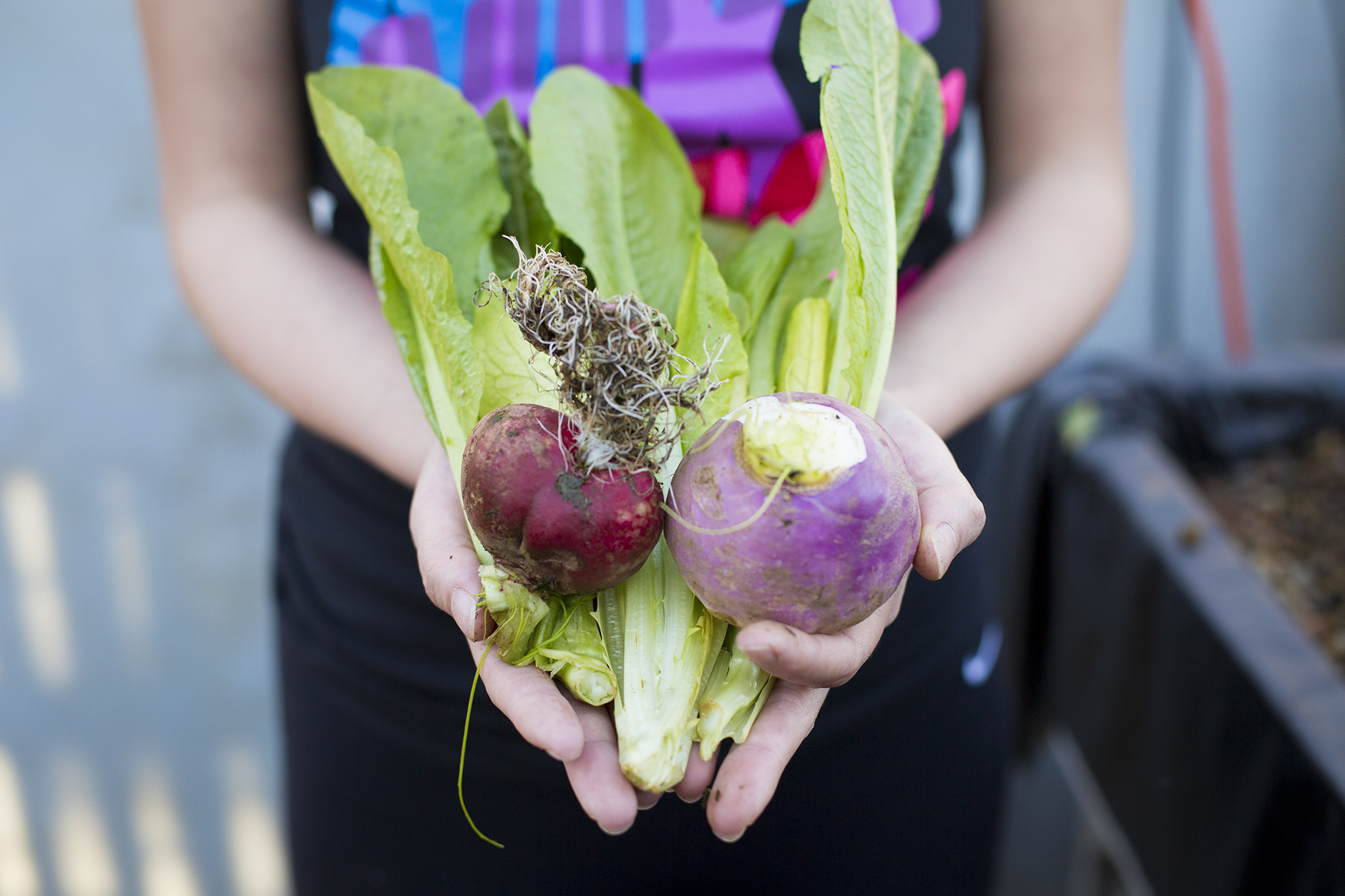 (Sacramento State/Jessica Vernone)
(Sacramento State/Jessica Vernone)A team of Sacramento State students has a bold plan to convert all 450 tons of lawn and food waste produced annually by the campus into high-quality fish and produce that will end up on dinner plates at the University Union’s Epicure restaurant.
The team was awarded a $15,000 grant from the Environmental Protection Agency (EPA) to research and develop its project for the 12th annual People, Prosperity and the Planet (P3) Student Design Competition. The students will present their aquaponics/sustainability design at the USA Science and Engineering Festival in Washington, D.C., in mid-April.
They’ll be competing against 37 other collegiate teams from across the country for a second grant of $75,000 to hone their design and potentially move it into the marketplace. (For a list of the P3 participants and their projects: http://1.usa.gov/1OeUwqC)
“The P3 project is unique,” says Dudley Burton, a professor of environmental studies. “It’s the notion of a comprehensive model for converting low-value waste materials – green (leaves and grass clippings), brown (dry leaves and paper) and food – that historically have gone into landfills. So here we’re talking about creating high-value edible food that will be served at campus restaurants.
“The aquaponics idea is to grow fish and vegetables together: The waste of one provides the nutrients for the other. This would be a model for sustainability that could be used by communities, cities, even countries,” he says.
Burton and Brook Murphy, a professor of biological sciences, are the project’s co-principal investigators and team advisors. The team will be made up of undergraduates from a variety of academic departments, including engineering, education, chemistry, ecology, environmental economics, environmental science and policy, family and consumer sciences, and information technology.
Sacramento State’s P3 project builds on a basic program model that was launched two years ago at the Sustainable Technology Optimization Research Center, better known as STORC, a 1½-acre property in the shadow of the Guy West Bridge. It is home to the campus’ groundbreaking aquaponics and sustainability research efforts.
A commercial greenhouse under construction at the site would become ground zero for the P3 project, which will involve developing a multi-tropic, closed-loop sustainable system that integrates vermiculture (earthworms and their byproducts) and soldier fly production with aquaponics to convert bio-waste into high-quality fish and vegetables.
“We think the significance of the overall project is important because there are not many processes that can be claimed to be sustainable on a long-term basis,” Murphy says. “This can go on forever, as long as people eat and throw away apple cores.” – Dixie Reid
